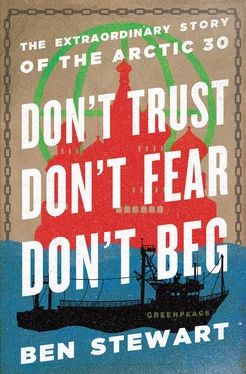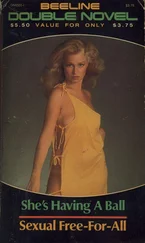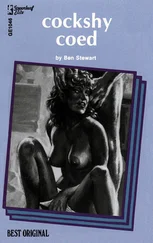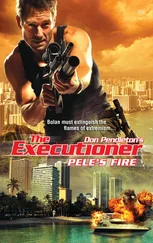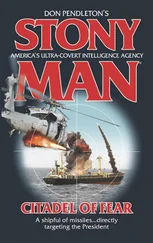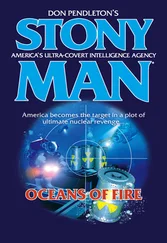It’s quiet, dark, he’s alone. He sits on the floor and stretches his legs, but they reach the other side of the cell before they’re straight. Three days, Dima thinks. That’s seventy-two hours. Minutes pass, then an hour, and another, or maybe it’s been longer. Or maybe not. If he counts to three hundred that’s five minutes, and if he does that twelve times then that’s one hour. He gets to his feet and starts pacing back and forth, counting time. ‘… two-nine-seven, two-nine-eight, two-nine-nine, three hundred, one, two, three, four…’
Hours pass. He’s still pacing when the door opens.
‘Bed time,’ says the guard.
‘What time is it?’
‘Ten o’clock.’
He’s been here fourteen hours.
The guard unclips the bench; it drops down, the door closes. Dima takes off his steel spectacles and lays them on the floor under the bench. He sleeps for a while but wakes in the night, paces some more, lies down again, sits on the edge of the bench, stands up, sits down again. He can feel the early stages of panic coming on. He forces himself to think of Lev, his oldest son. Lev has been travelling the world this past year, sailing the South Pacific as a dive master on a three-mast schooner. Now he’s en route to New Zealand to volunteer on an organic farm, but the last Dima heard he was on the island of Vanuatu.
Now he uses Vanuatu to suppress the fear. He stands back and looks through the window at the black sky, the wind from the Arctic whistling in. And he repeats the word. ‘Vanuatu Vanuatu Vanuatu.’ He’s imagining coral atolls, palm trees and white sand. Lev splashing out to a canoe.
But soon enough his mind is running to a dark place. He can’t make sense of this. Why has he been put here? It’s definitely a bad sign. If they were preparing to release him then they wouldn’t be doing this. His thoughts spiral down and down, down into the darkest place, the place where he’s kept his worst fears locked away. And now, when he tries to climb out, when he tries to imagine those coral atolls and white beaches, they won’t come to him, they might as well be on a different planet, because he’s slipping into a quicksand of panic.
Turma racing.
This is it. This is how it’s going to be now. Years of this shit, locked up in this hellhole of a prison, thrown into the kartser for daring to even look sideways at a guard. Seven years. How do you pace out that kind of time? How many seconds is that anyway? And what about Anitta? Shit, I’m going to have to tell her not to wait. I can’t ask her to put her life on hold while I’m rotting away in this place. No, I’ll tell her she’s not to wait around for me to get out. She has to get on with her life. Fuck. Seven years. Seven fucking years.
His mind races and races, he paces again, sits down, lies down, stands up, looks up at the sky and strains for Vanuatu. He paces and paces until the guards return. It’s 6 a.m. They fold up the bench and leave Dima a bowl of porridge. He ignores the food, paces the cell and counts to three hundred, and again, working through the minutes and the hours. The sun comes up and throws a bleak smudge of grey onto the wall for a few hours before retreating. Later the bench is lowered, another night, he sleeps and paces, lies down, stands up, sits on the bench.
I went to the Arctic to take on Gazprom, I thought it would give us a platform to talk about Arctic oil. I just never thought they’d keep us. But they did, and here I am. But that’s okay. We were challenging Gazprom, and Gazprom is Putin, so of course I’m in a punishment cell in an isolation prison in the Russian Arctic. And maybe this is where I should be. If you really believe in something then you have to show you’ll pay a price. What were we going to do, just hang a banner on that oil platform and say we’d done our job? We should be in jail. This is right. This shows we’re winning. This is where I need to be right now.
The next morning, or maybe it’s the afternoon, the door opens and a guard motions for him to step into the corridor. Dima rubs his eyes and looks up. Standing before him, extracting a piece of food from between his front teeth with the nail of his little finger, is Popov.
‘Dimitri, hello.’
Dima’s eyes narrow into slits. ‘What time is it?’
‘One o’clock.’
He’s been in that cell for twenty-nine hours.
‘Having a good time in there, are you?’
‘What do you think?’
‘Well hopefully this will teach you not to break our rules.’ Popov jerks his head. ‘Come with me.’
Dima puts on his spectacles. Popov leads him through the prison to the door of his office, then disappears inside, leaving Dima facing the wall, hands behind his back, a guard either side of him. Minutes pass. He wants to sit down, his feet are tired from pacing the kartser . Eventually a voice booms from the other side of the door.
‘Okay, bring him in.’
It’s huge, this office. Popov is sitting at a big desk behind a computer screen and keyboard. At the back of the room are two soft chairs facing each other below an enormous portrait of Putin. Popov starts speaking, and straight off his manner is oddly breezy. He uses the informal ‘ ty ’ when he’s addressing Dima, like they’re old friends.
‘You can take a seat,’ he says, and when Dima is seated he extends an arm and shakes Dima’s hand with vigour.
‘Do you smoke?’
‘I do now.’
‘You started in prison?’
‘Yeah. But I’m trying to quit.’
‘Would you like a cigarette?’
‘I’m in the kartser , I’m not allowed to smoke.’
Popov snorts. ‘It’s okay, don’t worry.’ He holds out a packet of cigarettes, Dima takes one, so does Popov. The governor lights it and breathes in deeply then two dark grey tusks appear as he exhales through his nostrils. He holds out the lighter for Dima then pops it back into his pocket, saying, ‘Tell me, have you ever read Goethe’s Faust ?’
‘I have.’
Popov takes a drag. ‘So you know this whole thing about good and evil then?’
‘Good and evil?’
‘In Faust .’
‘We all have good within us.’
‘That’s right Dimitri, yes. We’re all fundamentally good.’
‘And only errors of judgement make good people do bad things, but even bad people—’
Popov interrupts, saying, ‘If a person keeps striving, Dimitri, even bad people, if they keep striving then their mistakes will bring them closer to righteousness.’
‘So says Faust .’
‘If they strive , Dimitri. If they strive to be good.’
‘Yeah, I’ve read it.’
‘And you must strive. All of you. What you did, it was a mistake, you know that. But you can be good people again, I know you can. And you, Dimitri’ – he uses the familiar ‘ ty ’ again – ‘you are somebody who can strive, who must strive. It’s in your blood, you’re a Litvinov, and by recognising your errors of judgement you can become good again. Don’t you think?’
Dima leans back and draws on his cigarette. ‘It rather depends on whether you think holding a peaceful protest at an Arctic oil platform is an error of judgement. Some people, and I believe there are many millions of them, might say that us being kept here, in this prison, is a more fundamental error of judgement, and is one that says much more about the nature of good and evil than our climate change campaign.’
Popov berths his cigarette in the ashtray and holds his palms together, as if in reflective prayer. Then he taps his chin with the tips of his fingers, contemplating Dima’s assertion, before leaning back in his chair. ‘What do you understand by the concept of nationhood?’
Читать дальше
